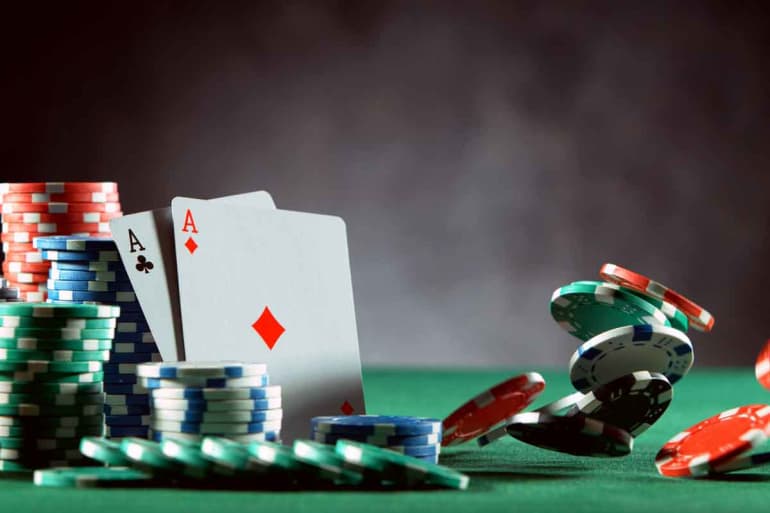Did you know that some rehab facilities now treat people with an addiction to Bitcoin? Cryptocurrency trading touches on many of the same points as a regular gambling addiction. It activates the same risk and reward centers as traditional slot machines or other card games. The dangers of trading cryptocurrency are no less real only because people don’t understand it.
People with an addiction to Bitcoin are likely predisposed to addiction in the first place. It’s not necessarily the Bitcoin itself but the exciting nature of “maybe today is the day.” They watch prices rise and fall, hoping they might get the “hit” they’re looking for.
Did you know about cryptocurrency addiction? Do you know what cryptocurrency is? Continue reading to learn more about these digital currencies, how some people develop an addiction to Bitcoin and more.
How Do People Develop an Addiction to Bitcoin?
Bitcoin, Ethereum, Ripple, and Dogecoin are four of the most popular cryptocurrencies available. At its most basic, cryptocurrency is a digital currency that relies on cryptography to keep them secure. A technology known as blockchain tracks each transaction to ensure nothing is created or spent twice.
Introduced in 2008, Bitcoin remained relatively unknown outside of tech communities for the first few years. The idea of an addiction to Bitcoin was far from people’s minds. Prices on the currency rose, though, edging it further into the public light. More and more people learned about it after the price of a single Bitcoin rose above $1,000 for the first time in January of 2017.

Bitcoin became even more desirable when share values skyrocketed to nearly $20,000 per share in December 2017. People wanted in and they spent large sums to secure their share. Issues arose among those unfamiliar with trading digital currencies, though. Most didn’t understand the extremely variable nature of the market and jumped in too late.
While anyone can purchase their own Bitcoin, there is a higher barrier to entry when it comes to understanding it. Some take the time to read up on and understand it while others jump in with the idea they’ll get rich quick. These people don’t completely understand how cryptocurrency, or price markets in general, work. They latch onto the gambling aspect of it.

Similarities to Gambling Addiction
Gambling is a fun way for millions to pass the time when they escape to Vegas for a weekend. They mindlessly press the buttons on themed slot machines or try their hand at a few rounds of cards. The majority of these individuals have no problem walking away when their chips are down. Some of them have a much harder time cutting their losses, though.
It doesn’t matter what you call it: gambling addiction, compulsive gambling, problem gambling, or gambling disorder. Roughly 2.6 percent of the population in the United States deals with some type of abnormal gambling behavior. People with an addiction to Bitcoin would also find themselves in this category.

You might think it odd to call problem gambling an addiction, putting it on par with drug addiction or alcoholism. People who deal with a gambling disorder, though, understand it can tear your life apart in just the same way. They seek a high similar to the highs sought by addicts and alcoholics. Gambling addicts simply use a different outlet.
Physicians once classified it as a compulsion instead of an addiction. More research surrounding the nature of addiction showed it to more closely linked than originally imagined. Gamblers receive the reward of a dopamine surge when they win then continue seeking that same feeling over and over.

The dangers of the addiction stigma surrounding those who struggle with drugs are apparent. What are some of the most common myths about addiction? Learn more about a few of the most misunderstood myths about addiction and how the stigma impacts addicts worldwide.
More infoSigns of Gambling Addiction
The Diagnostic and Statistical Manual of Mental Disorders outlines criteria for various mental disorders and illnesses. They include a set of symptoms seen in pathological gamblers, just like they have for people with substance abuse or alcohol problems. The following are some signs of gambling addiction:
- Needing to gamble greater amounts of money to achieve the level of excitement they want.
- Feeling restless, irritable, or frustrated when they cannot gamble.
- Having difficulties with cutting back on or quitting gambling entirely.
- Constantly occupied with thoughts of gambling or how to get money to gamble.
- Gambling in response to negative feelings, such as anxiety, depression, or stress.
- Returning to gambling after losing a significant amount (“chasing one’s losses”).
- Lying about the amount or frequency with which they gamble.
- Risking the loss of or losing jobs or educational opportunities as a result of their gambling.
- Relying on others to support their gambling habits.
As you can see, gambling can cause quite a few problems on its own. It might not come with the health risks of alcohol or drug addiction but it carries similar effects on the people surrounding the addict.

Addiction to Bitcoin: Is It Possible?
Even with a limited understanding of cryptocurrency, you can easily see how it pulls people in. Those with a predisposition to addiction are more likely to find themselves hooked. They can lose themselves in the world of cryptocurrency blogs, closely following each shifting trend. Seeing a spike in the value of their stockpile prods at their addiction to Bitcoin.
If someone starts showing the signs of gambling addiction above in their Bitcoin trading behaviors, they might have a problem. Don’t write off their behavior simply because it’s an online currency. They can quickly tear the roof down on themselves if they aren’t able to cut back.
There are still very few treatment centers that specialize in addiction to Bitcoin. Seeking help at a facility that understands gambling addiction, though, will help. If you know someone who needs help with problem behaviors related to Bitcoin or other gambling, Hawaii Island Recovery is here. We are available to walk your loved one through the difficulties of their addiction.
Want to know more about the programs we offer? Call us today at 877-721-3556 to speak with our admissions office today.
 Hawaii Island Recovery
Hawaii Island Recovery 










